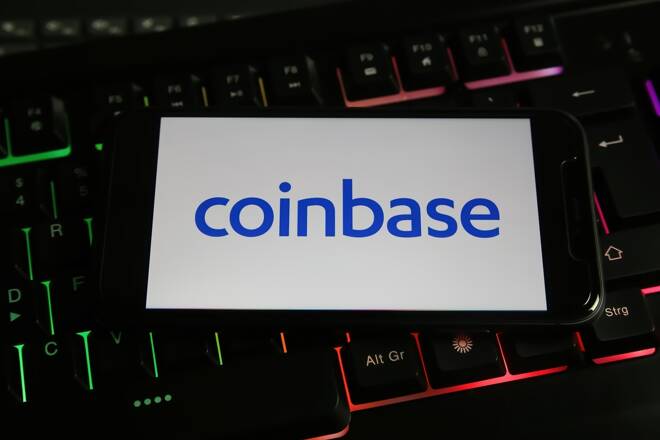Advertisement
Advertisement
Coinbase CEO: Reserve Bank of India’s Pressure Triggered Trading Halt
Updated: May 11, 2022, 13:51 GMT+00:00
Coinbase’s CEO Brian Armstrong said that the exchange prefers to work with the Reserve Bank of India and focus on relaunching.
Key Insights:
- Coinbase’s CEO blames RBI’s informal pressure for disabling UPI payments in India.
- Brian Armstrong highlighted the uncertainty around the legality of cryptos in the country.
- Coinbase is seeking to work with the RBI and relaunch its operations in India.
Brian Armstrong, CEO of American crypto exchange Coinbase (COIN), has blamed pressure from the Reserve Bank of India (RBI) over disabling its UPI services.
During the company’s earnings call on Tuesday, Armstrong noted that:
“A few days after launching, we ended up disabling UPI because of some informal pressure from the Reserve Bank of India.”
The Nasdaq-listed exchange initially launched its services in India on April 7 and added UPI (Unified Payment Interface), a payment system for money transfers, for buying cryptocurrencies such as bitcoin (BTC) and ethereum (ETH).
Soon after the launch, Coinbase suspended its UPI facility, which came as a disappointment to crypto users in the nation. As reported by FX Empire, the suspension of UPI payments came as a result of a strange statement from the National Payments Corporation of India (NPCI), noting that it was unaware of any crypto exchange using UPI.
Brian Armstrong mentions the actual reason
Apart from “informal pressure from the RBI,” Armstrong highlighted the regulatory uncertainty around cryptocurrencies in India.
Calling India a “unique market,” he said that the Supreme Court could not entirely ban cryptocurrencies. However, he noted that few government bodies such as the RBI “don’t seem to be as positive on it.” He said:
“And so they – in the press, it’s been called a ‘shadow ban,’ basically, they’re applying soft pressure behind the scenes to try to disable some of these payments, which might be going through UPI.”
Last month, several Indian banks approached the NPCI seeking clarification on the “shadow ban” on cryptocurrencies and using UPI payments for bitcoin transactions.
According to the CEO, the exchange had concerns that the central bank had violated the Supreme Court ruling. He noted:
“I guess we have a concern that they may be actually in violation of the Supreme Court ruling, which would be interesting to find out if it were to go there. But I think our preference is really just to work with them and focus on relaunching.”
Coinbase might come back into Indian market
The CEO concluded the talk by stating that the exchange expects to return to India with additional payment options soon. He added:
“I think there’s a number of paths that we have to relaunch with other payment methods there. So my hope is that we will live back in India in relatively short order, along with a number of other countries, where we’re pursuing international expansion similarly.”
In the long run, crypto will eventually be regulated and legal in most democracies in the world, Armstrong said, adding that it would take time for such countries to get comfortable with them.
About the Author
Sujha Sundararajanauthor
Sujha Sundararajan is a writer-journalist with 7+ years of experience in Blockchain, Cryptocurrency and in general, FinTech news reporting. Her articles have featured in multiple journals such as CoinDesk, Protos, Bitcoin Magazine, CCN, Asia Blockchain Review, BeInCrypto and EconoTimes to name a few. She holds a Master’s in Journalism from the Indian Institute of Journalism and New Media and is also an accomplished Indian classical singer.
Advertisement
